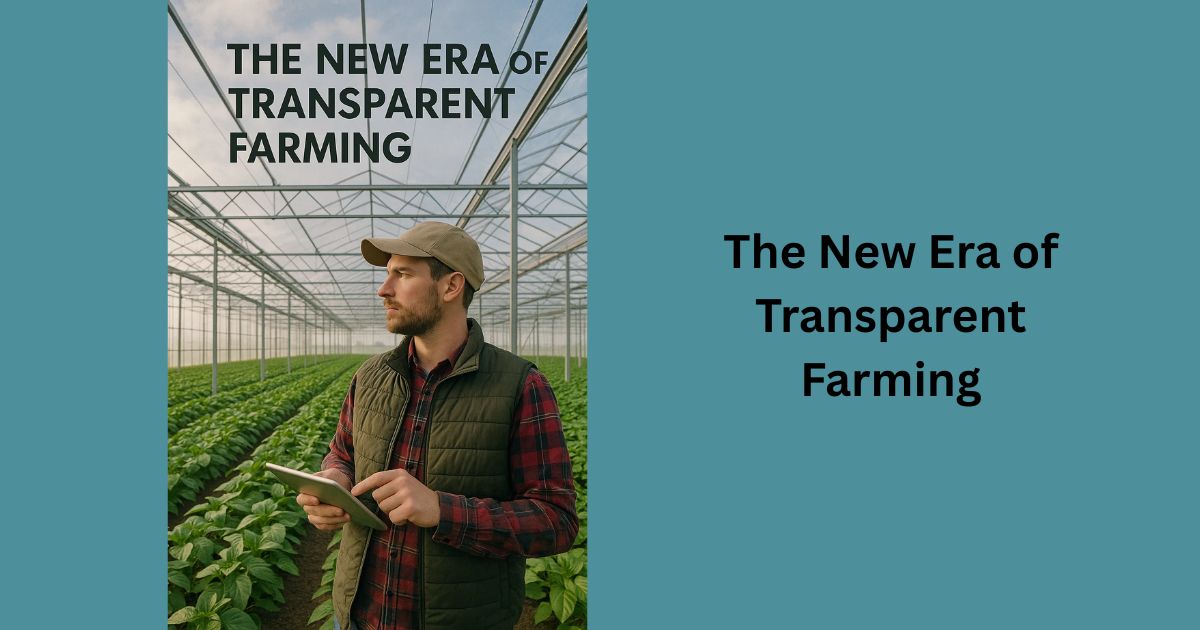
Introduction: The New Era of Transparent Farming
The agriculture sector is experiencing a major transformation driven by digitalization, sustainability goals, and the growing demand for food safety. Modern solutions now allow farmers and agribusinesses to optimize processes, reduce risks, and provide complete visibility across the supply chain. Among these solutions, Farm Management Software has emerged as a powerful tool, enabling producers to track inputs, monitor yields, and make informed decisions with verifiable data.
The Importance of Accountability in Modern Agriculture
For centuries, accountability in farming largely depended on trust, but todayí»s food industry requires documented proof. Markets and regulators now expect farmers to validate claims of sustainability, productivity, and ethical practices. This is where digital innovations such as Farm Traceability Software come into play, helping producers record and present every detail of crop growth, pesticide usage, and compliance checks. Such traceable systems ensure transparency not just within farms but throughout the entire agricultural network.
Data-Driven Farming for Smarter Decision-Making
Farming decisions that were once based on intuition are now guided by data. Advanced tools powered by IoT sensors, AI-driven insights, and predictive analytics empower farmers to optimize irrigation, nutrient use, and harvest timing. By capturing real-time information, these systems guarantee that every choice is backed by measurable evidence, making accountability a built-in process.
Blockchain for Transparent Supply Chains
The use of blockchain in agriculture is solving long-standing challenges of supply chain opacity. By recording every step in an immutable ledger, blockchain creates trust between all stakeholdersí¬farmers, distributors, retailers, and consumers. A buyer can instantly verify where a product originated, how it was grown, and whether it meets safety standards. This approach makes accountability seamless and secure.
Building Trust with End-to-End Transparency
Consumers today expect to know not just what they are eating, but also how it was produced. Platforms that deliver Farm to Fork Traceability are answering this demand by mapping food journeys with accuracy. From the seed sown in the soil to the packaged product on the store shelf, every step can now be monitored and verified. This transparency builds lasting consumer trust while rewarding farmers who adopt sustainable practices.
Digital Compliance and Certification
Navigating compliance standards has always been complex for farmers, but digital tools are simplifying the process. Automated reporting systems allow farmers to log pesticide applications, water use, and harvesting schedules in a secure and accessible format. Regulators and certification bodies can then review this information effortlessly, ensuring that farmers remain accountable while reducing administrative burdens.
Sustainability as the Core of Accountability
Sustainability is no longer a choiceí¬it is central to modern farming accountability. By leveraging precision farming, drones, and satellite monitoring, farmers can reduce water consumption, optimize chemical usage, and preserve biodiversity. These practices not only help protect the environment but also demonstrate accountability to eco-conscious markets.
Overcoming Barriers to Adoption
Despite the clear benefits, adoption of these accountability-driven tools can be slow among smallholder farmers. High initial costs, limited digital literacy, and poor connectivity are common hurdles. However, with governments offering subsidies, agritech startups creating user-friendly platforms, and training programs being rolled out, accessibility is improving. Scaling these innovations to reach even the smallest farms will make accountability universal.
The Future of Accountable Agriculture
As global food systems face mounting challenges, accountability will remain at the heart of agricultural progress. Whether through blockchain, AI, or sustainability-driven platforms, the future lies in transparent and verifiable farming practices. Farmers who adapt will not only enhance productivity but also secure consumer trust, regulatory compliance, and long-term market access.
Conclusion
The agricultural industry is entering a new chapter where accountability is intertwined with innovation. From digital farm management to traceability platforms and end-to-end transparency, technology is equipping farmers to demonstrate integrity at every stage of food production. This evolution is shaping a future where consumers, regulators, and farmers work within a trusted systemí¬ensuring that accountability in agriculture is not just promised but proven.












